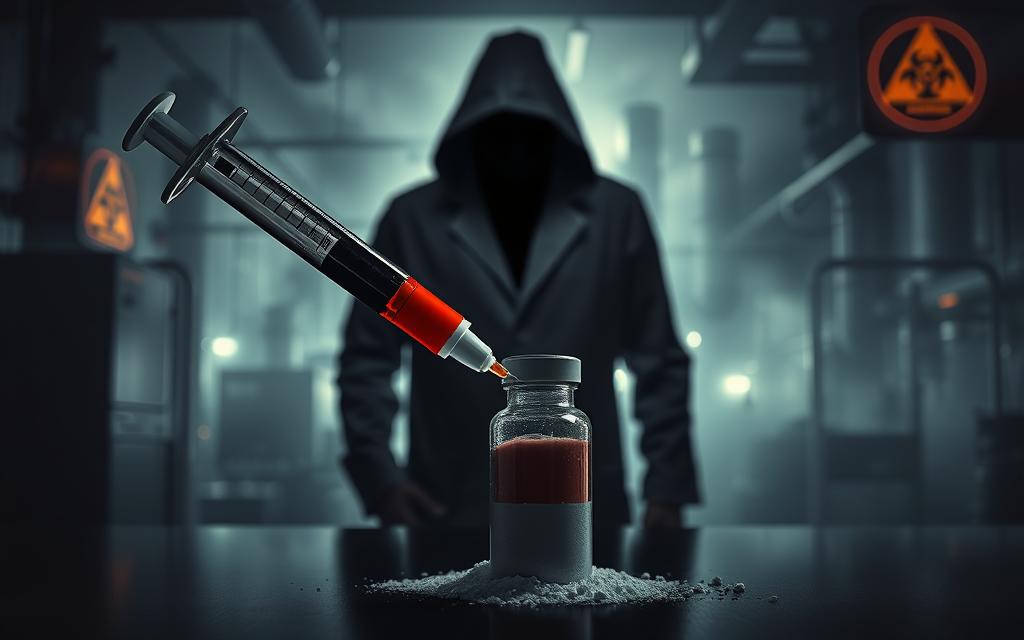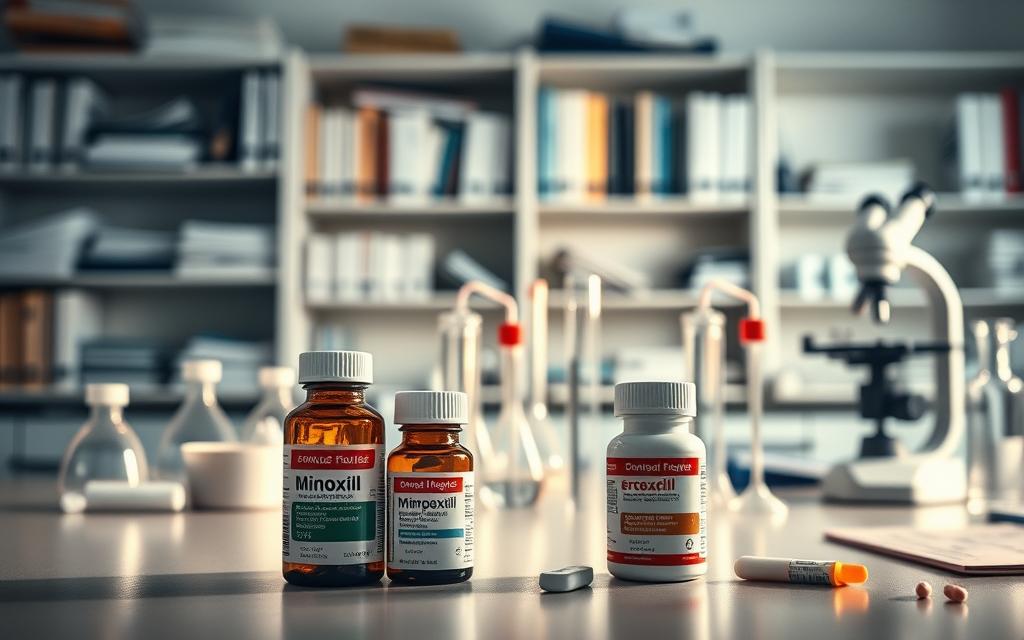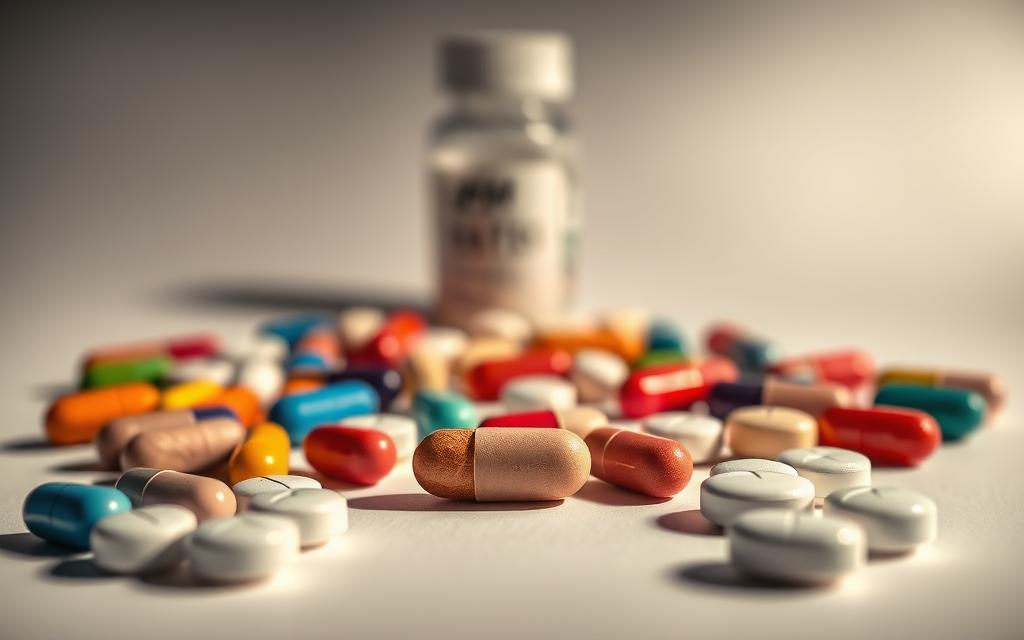Understanding the Risks: Erectile Dysfunction Medication and Nitrate Interactions
Men who take erectile dysfunction medication often need to be aware of the potential risks associated with combining these drugs with other medications, particularly nitrates.
Nitrates, commonly prescribed for heart conditions, can interact dangerously with certain erectile dysfunction treatments, leading to a significant drop in blood pressure.
This interaction can be life-threatening, making it crucial for individuals to understand the risks before taking these medications together.
Consulting a healthcare provider is essential to ensure safe treatment options for sexual health.
The Relationship Between Medications and Erectile Function
Erectile function can be influenced by a range of medications, including those for blood pressure and psychiatric conditions. Understanding how different classes of medications affect sexual health is crucial for managing erectile dysfunction effectively.
How Different Drug Classes Affect Sexual Health
Different classes of medications can have varying impacts on sexual health. For instance, some medications can cause erectile dysfunction as a side effect, while others may have minimal effects.
Common Medications Known to Impact Erectile Function
Certain medications are known to affect erectile function. These include:
- Blood pressure medications, which can cause erectile dysfunction in some individuals.
- Psychiatric drugs, such as antidepressants, which can also impact sexual health.
Blood Pressure Medications
Blood pressure medications, particularly beta-blockers and diuretics, have been associated with erectile dysfunction. Beta-blockers can reduce blood flow, potentially impairing erectile function.
Antidepressants and Psychiatric Drugs
Antidepressants, especially selective serotonin reuptake inhibitors (SSRIs), can affect sexual health, leading to erectile dysfunction or decreased libido. It’s essential to discuss these side effects with a healthcare provider.
What Are Nitrates and Why Are They Prescribed?
Nitrates are a class of medications commonly used to treat cardiovascular conditions. They are primarily prescribed to alleviate symptoms associated with heart disease, such as chest pain (angina).
Common Nitrate Medications in Cardiovascular Treatment
Nitroglycerin is one of the most well-known nitrate medications, often used to relieve angina symptoms. Other nitrate medications include isosorbide mononitrate and isosorbide dinitrate, which are used for long-term management of angina and heart failure.
Medical Conditions Requiring Nitrate Therapy
Nitrates are prescribed for various cardiovascular conditions, including angina pectoris, heart failure, and acute myocardial infarction. These conditions are characterized by reduced blood flow to the heart, which nitrates help to alleviate by dilating blood vessels.
How Nitrates Affect Blood Pressure and Circulation
Nitrates work by releasing nitric oxide, a potent vasodilator that relaxes the smooth muscle in blood vessels, causing them to dilate. This dilation reduces blood pressure and improves circulation, thereby reducing the workload on the heart and alleviating symptoms of angina and heart failure.
Erectile Dysfunction Medications: Mechanism of Action
The mechanism of action of ED medications is crucial in understanding their effectiveness and potential interactions. Erectile dysfunction medications, primarily PDE5 inhibitors, work by enhancing the effects of nitric oxide, a natural chemical the body produces that relaxes the muscles in the penis, increasing blood flow.
PDE5 Inhibitors Explained
PDE5 inhibitors, such as sildenafil (Viagra) and tadalafil (Cialis), are the most commonly prescribed ED medications. They work by inhibiting the phosphodiesterase type 5 enzyme, which breaks down cyclic guanosine monophosphate (cGMP). By preventing the breakdown of cGMP, PDE5 inhibitors facilitate smooth muscle relaxation and increased blood flow to the penis, aiding in achieving and maintaining an erection.
Popular ED Medications in the US Market
Popular ED medications in the US include sildenafil (Viagra), tadalafil (Cialis), vardenafil (Levitra), and avanafil (Stendra). Each has its unique characteristics, such as duration of action and side effect profile, allowing healthcare providers to tailor treatment to individual patient needs.
Normal Side Effects vs. Dangerous Interactions
While PDE5 inhibitors are generally well-tolerated, common side effects include headache, flushing, and nasal congestion. However, when combined with nitrates, these medications can cause a dangerous drop in blood pressure, leading to potentially life-threatening consequences. Understanding the difference between normal side effects and dangerous interactions is crucial for safe treatment.
The Dangerous Interaction: ED Medications and Nitrates
The concurrent use of erectile dysfunction (ED) medications and nitrates can lead to a potentially life-threatening interaction. This is because both types of medications affect blood flow and pressure, albeit in different ways.
The Physiological Mechanism Behind the Interaction
ED medications, primarily PDE5 inhibitors, work by increasing blood flow to the penis to facilitate an erection. Nitrates, on the other hand, are used to treat angina by relaxing and widening blood vessels to improve blood flow to the heart. When taken together, they can cause a synergistic effect that leads to a significant drop in blood pressure.
Potential Health Consequences
The combination of ED medications and nitrates can result in severe health consequences, including:
Severe Hypotension Risks
Severe hypotension, or low blood pressure, can lead to inadequate blood supply to vital organs, causing dizziness, fainting, and even organ failure in extreme cases.
Cardiovascular Emergencies
The risk of cardiovascular emergencies, such as heart attacks and strokes, is also increased due to the strain on the heart caused by the sudden drop in blood pressure.

Warning Signs of Adverse Reactions
It’s crucial to be aware of the warning signs of adverse reactions when taking ED medications and nitrates together. These include:
- Dizziness or fainting spells
- Chest pain or discomfort
- Shortness of breath
- Rapid or irregular heartbeat
| Symptom | Description | Action |
|---|---|---|
| Dizziness | Feeling lightheaded or unstable | Seek immediate medical attention |
| Chest Pain | Discomfort or pain in the chest area | Call emergency services |
| Shortness of Breath | Difficulty breathing or feeling winded | Seek immediate medical help |
Does Minoxidil Pills Cause Erectile Dysfunction?
Investigating the relationship between minoxidil pills and erectile dysfunction requires understanding the drug’s primary uses and its effects on the body. Minoxidil is a vasodilator used to treat high blood pressure and promote hair growth.
Understanding Minoxidil’s Primary Uses and Formulations
Minoxidil is available in various formulations, including topical solutions and oral tablets. Topical minoxidil is widely used for treating androgenetic alopecia, while oral minoxidil has been explored for its potential in treating hair loss due to its systemic effects.
Research on Oral Minoxidil and Sexual Function
Research into the effects of oral minoxidil on sexual function is ongoing. Some studies suggest that vasodilators like minoxidil could potentially improve erectile function by enhancing blood flow. However, other reports indicate possible negative effects on sexual health.
Comparing Side Effects: Topical vs. Oral Minoxidil
The side effect profiles of topical and oral minoxidil differ significantly. Topical minoxidil is generally well-tolerated, with rare systemic side effects. In contrast, oral minoxidil can cause more pronounced systemic effects, including potential impacts on blood pressure and, by extension, erectile function.
Patient Experiences and Clinical Observations
Patient experiences with minoxidil vary widely. Some individuals report no significant effects on their sexual health, while others note changes in erectile function. Clinical observations suggest that individual responses to minoxidil can be highly variable, influenced by factors such as underlying health conditions and concurrent medications.
In conclusion, the relationship between minoxidil pills and erectile dysfunction is complex and multifaceted. Further research is needed to fully understand the potential interactions and to guide clinical practice.
Using Minoxidil and ED Medications: Safety Considerations
When considering the use of minoxidil alongside erectile dysfunction (ED) medications, it’s crucial to understand the potential safety implications. Both types of medications are commonly used, with minoxidil often prescribed for hair loss or hypertension and ED medications for treating erectile dysfunction.
Potential Interactions Between Minoxidil and ED Drugs
Minoxidil and ED medications, particularly PDE5 inhibitors like sildenafil, can interact in complex ways. While minoxidil is primarily used topically or orally for hair growth or blood pressure management, its interaction with ED medications may lead to enhanced vasodilation.
Blood Pressure Concerns with Combined Use
The combined use of minoxidil and ED medications can lead to significant blood pressure drops, potentially causing hypotension. Monitoring blood pressure is essential when using these medications together.
Recommended Precautions and Monitoring
To ensure safe usage, consider the following precautions:
- Consult a healthcare provider before starting or combining these medications.
- Monitor blood pressure regularly.
Timing of Medications
Spacing out the timing of minoxidil and ED medication intake can help mitigate potential interactions.
When to Seek Medical Help
If symptoms like dizziness, fainting, or severe hypotension occur, seek medical help immediately.
| Medication | Primary Use | Potential Interaction |
|---|---|---|
| Minoxidil | Hair loss, Hypertension | Enhanced vasodilation |
| PDE5 Inhibitors (e.g., Sildenafil) | Erectile Dysfunction | Hypotension |

Safely Managing Erectile Dysfunction and Cardiovascular Health
Understanding the risks associated with erectile dysfunction medication and nitrate interactions is crucial for safe treatment. The combination of these medications can lead to severe health consequences, including dangerous drops in blood pressure.
When considering erectile dysfunction treatment, it’s essential to disclose all medications, including minoxidil, to your healthcare provider. Minoxidil side effects can be significant, and its interaction with ED medications may exacerbate cardiovascular risks.
By being aware of these potential interactions and taking necessary precautions, individuals can safely manage their erectile dysfunction and cardiovascular health. Always consult with a healthcare professional before starting or changing any medication regimen.
